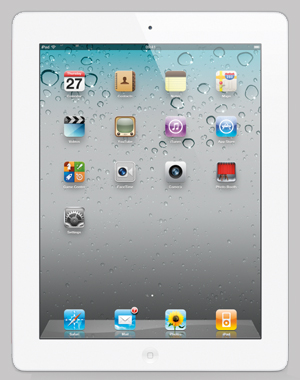'App internet' will not only kill the old PC model - it could hurt cloud too

Why the trend that Apple started could spell trouble for Google

The increasing power of devices and the internet means apps will become a much bigger part of business IT in the future, according to Forrester founder George ColonyPhoto: Apple
Thanks to the rise of the tablet and the smartphone, more and more of us are choosing to access the web through apps rather than the traditonal browser. The advent of the 'app internet' will not only spell the end of the traditional PC model - it could also limit the impact of cloud computing, according to analyst group Forrester.
Speaking at Forrester's IT Forum EMEA 2011 in Barcelona, founder and CEO George Colony defined the app internet as an "incredibly powerful" centre composed of datacentres linked via the internet to a periphery of "ever more powerful" devices such as smartphones and tablet PCs.
According to Colony, the rise of the app internet will mean the traditional PC model associated with Microsoft and the cloud-based approach of Google and others will both become outmoded.
"The problem with [the old PC] model is that it does not leverage the efficiency and power at the centre, so we believe that the old PC Microsoft model is dead," he told the forum in Barcelona last week.
"App internet is going to change PCs totally. The old idea of a PC where you loaded shiny disk into it with Microsoft Word will be completely destroyed by app internet. All of the applications running on your PC are going to be linked at all times into the internet," Colony told silicon.com.
And despite predictions of 2011 being a breakthrough year for cloud technologies, Forrester predicts the app internet will put limits on the spread of cloud too.
"The problem with the cloud model is that it does not leverage the power and storage at the periphery of the web, so we believe that the cloud model and the web are in fact dead models," Colony said.
"There will be some...
...uses for pure cloud but it is not going to be the dominant architecture. Cloud is making us head out to the network for something that we may have locally," Colony said.
SaaS applications will be under threat when the app internet approach takes hold. "The web-based software as a service is in big trouble because they're on the old model," he added.
Nevertheless, the cloud model will still have a role in the app internet world. "There'll still be places for cloud. You can have niche applications – back-up storage can be pure cloud," Colony told silicon.com.
Apple kicks off the app internet
According to the Forrester founder, Apple is leading the development of the app internet with its iPhone and Mac app stores. The iPhone is a "crude version" of the concept with "applications that are sitting on a powerful device, calling out into the network for data and resources and using the centre and the periphery at the same time", he said.
However, fellow tech giant Google may not be a good fit for the app internet world - its reliance on the web rather than devices could cost it, Colony believes, citing the fact that Chrome OS only works when the device running it is connected to the internet.
"It's a laptop with very little storage and very little processing power. It only works when connected to the web. That was the greatest act of corporate idiocy that I've ever observed."
In the app internet model, an internet connection is highly useful, but working offline must still be possible. "You have some applications which are using heavy executables on these devices which are calling into the internet infrequently. Then you have applications which are highly internet dependent and are executing less on the devices. I think you'll see many approaches but the important point is that many of the app internet experiences will work without a connection to the internet - they won't work with the full power, but they'll still work to some degree," Colony said.
"Google is a really risky bet for app internet because they're so web-focused. They would love it if we used the web forever," he added.
The analyst believes that some of the other major tech players such as Dell and HP will be able to adjust in the app internet environment, however. "I think big software companies might be OK if they can change their business model to app internet," he said.
"They are the periphery – they're in the PC business, they're already in the device business and they're already in the mobile business. If they can now move their thinking towards app internet, we'll be in good shape," he told silicon.com.
Wait for it, wait for it...
The early signs of a shift from traditional web browsing to an app internet model are already in evidence: research by Forrester has found that 15 per cent of tablet users say they already use apps more than the web and it predicts that tablets alone will account for $8.1bn in global app sales in 2015, up from $300m in 2010.
With the emergence of app internet model and its potential to disrupt the cloud, should CIOs be re-examining their software as a service strategy? Not so fast: according to Colony, there are currently very few enterprise applications that fulfil the new model. "It's too early really. Remember software as a service is primarily about enterprise and we don't have any enterprise apps yet for the app internet," he said.